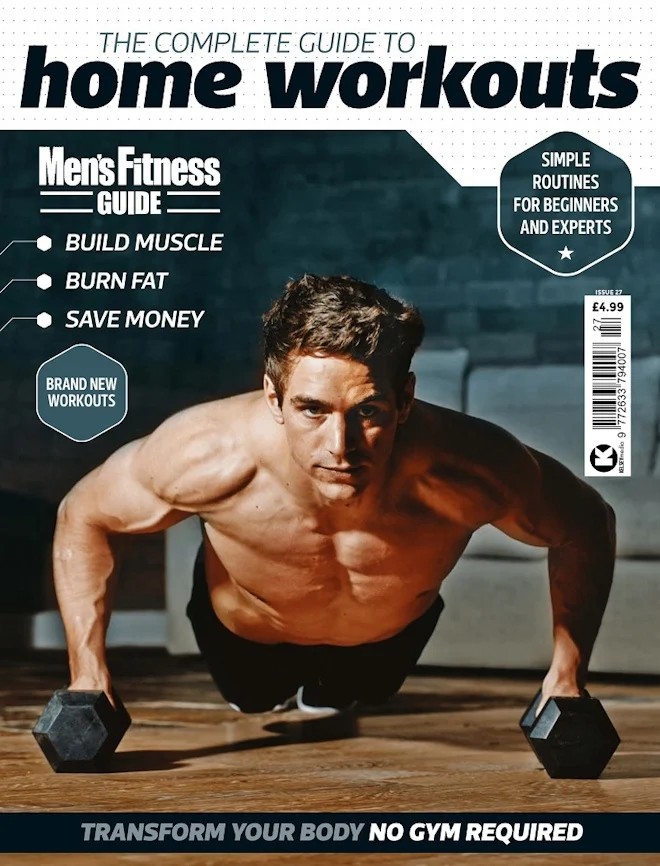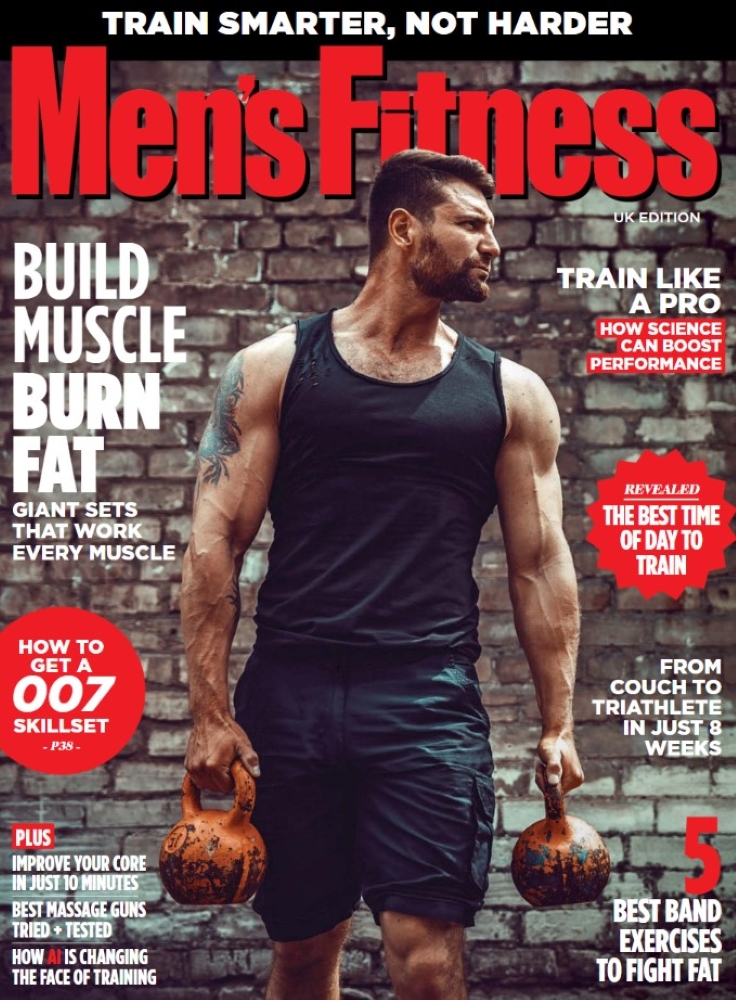Daniel Dubois is the reigning IBF heavyweight champion of the world. Men’s Fitness caught up with him to find what it takes to be a world boxing champion
Daniel Dubois won his first world heavyweight title in the summer of 2022 when he defeated Trevor Bryan in Miami in four rounds. In a controversial fight against the unified heavyweight champion Oleksandr Usyk a year later, Dubois lost in nine rounds. He was subsequently promoted to IBF champion before beating long-time rival Anthony Joshua. Dubois was forced to pull out of his recent match against Joseph Parker through illness.
Men’s Fitness (MF): You started boxing at the age of 9. Was that a shock to the system or were a natural even at that age?
Daniel Dubois (DD): My dad was a big fan of the sport and we used to watch it a lot together. That fuelled my interest. It just naturally took me in that direction and I picked it up pretty quickly. But it wasn’t my only sport when I was younger – I used to train Crystal Palace doing track and field. All round fitness was important even back then.
MF: You were a very successful amateur but you decided to turn pro before the Tokyo Olympics. What was it that made you decide?
DD: There were a lot of factors that influenced that decision – the politics in Sheffield [home to the English Boxing Association, the way the Great Britain boxing set up works – and the fact that if you miss out on team selection, you have to wait another four years before you get a shot at the title. But all that aside, Frank Warren gave me a good offer and a good opportunity. I was sparring with some good fighters and I was ready for it.
MF: You won the British heavyweight title aged only 22. Steve Bunce said you fought like an ‘old seasoned bruiser’. Is that a fair description?
DD: That was against Nathan Gorman and I remember it being a good dust up [Dubois knocked Gorman out in the fifth round]. I knew him from my amateur boxing days, growing up boxing against him. The fight was built up pretty well at the time. Domestic heavyweight boxing is a small world: you end up training or sparring with all of the heavyweights that are around.
MF: In your fight against Joe Joyce, despite being ahead on the judges’ cards, you went down on one knee in the 10th. Some people criticised you but others said it was the right decision. Looking back, what do you think?
DD: It’s very easy for people to criticise. I wish they could feel what I felt in that fight [Dubois’s eye was swelling from as early as the second round. After the fight it was revealed that he’d broken his left orbital bone and was out of action for six months]. I’m glad that I’ve managed to prove all of those people wrong and prove that I’m a legitimate champion. I am the real deal. It was a good test at the time and I was only 22. You have to be able to learn from all these experiences and let the criticism bounce off you.
MF: You won your WBA World Title against Trevor Bryan in 2021. How did that feel? Did it open more doors?
DD: It was a really good fight. We flew out to Miami for the fight and got to meet Don King, who has done so much for the sport of boxing. It was good to be in that circle and meet some of the best fighters of all time. It also opened up some bigger opportunities for me [the win meant Dubois would become mandatory challenger to unified heavyweight champion Oleksandr Usyk].

MF: A lot of fights have some controversy but yours against Usyk was particularly contentious. Do you still think you potentially won that fight?
DD: I prefer to look forward as now I’m going to have the chance to put that wrong, right [despite having to pull out of the Parker fight, the smart money is still on a unification bout against Usyk]. I learned some lessons outside of the fight itself, with regards to my training camp, and things about myself too. It’s about turning that negative into a positive and waiting for the next opportunity.
MF: Can you tell us what a typical training day looks like?
DD: I’m in the gym every day working on boxing skills, running, working with pads. But I can’t divulge the exact elements. I don’t want to give anything away to my competitors!
MF: Who decides what you do?
DD: I have a few coaches – a strength and conditioning coach, a coach for boxing skills and others. The two elements – conditioning and boxing – just gel together when you’re doing each of them to the best of your abilities. They complement each other. Boxing is tough: you have 12 rounds of 3 minutes, unless you land a knockout punch before that!
MF: What training do you like best and least:
DD: To be honest, I like it all. If it works, and it’s going to help me when the next fight, then I like it. I don’t ever look at something and say ‘I don’t want to do that’. I’ve gone beyond that now.
MF: How do you acclimatise before a fight?
DD: The Parker fight is in Saudi so we’ll probably go out a week before. There’s a different air and sand everywhere, so it’s about getting used to the different conditions. Also, people forget that we have a lot of commitments before the fight, with media interviews and other things.
MF: Do you control your nutrition? What does this look like?
DD: I do have a strict nutrition regime. I’m fortunate in that my dad does all the cooking. Right now, with the training and nutrition schedule, I think I’m in the best shape I’ve ever been in. I’m at my peak, so it’s all downhill from here!
MF: And finally…who do you think is the best heavyweight of all time?
DD: There are so many inspiring figures in boxing like Muhamed Ali, George Foreman and guys that you want to emulate. But I’m in my lane making my own name.








